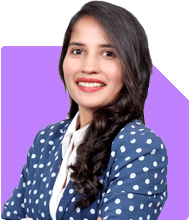Ramalingam Kalirajan |6199 Answers |Ask -Follow
Mutual Funds, Financial Planning Expert - Answered on Jul 19, 2024
He has an MBA in finance from the University of Madras and is a certified financial planner.
He is the director and chief financial planner at Holistic Investment, a Chennai-based firm that offers financial planning and wealth management advice.... more

Hi, I'm 30 years old with around 80k in equity. I have a home 27 laksh which I pay 29 and a house rent 25, my wife has a car loan of 25. I get a in hand of 150000 l. I need advice in making investment in equity for next 5 years strategically.
Evaluating Your Financial Goals
Your primary goal is to invest in equity for the next 5 years strategically. It’s essential to balance your investments with your existing financial obligations.
Current Financial Commitments
Home Loan EMI: Rs 29,000
House Rent: Rs 25,000
Car Loan EMI: Rs 25,000
Available Income for Investment
After accounting for your fixed commitments, you have Rs 71,000 left monthly for other expenses and investments.
Emergency Fund
Ensure you have an emergency fund to cover at least 6-12 months of expenses. This should be your first priority before making new investments.
Build Emergency Fund: Rs 5 lakh
Existing Equity Investment
You have Rs 80,000 in equity investments. Review this portfolio regularly and diversify to reduce risk.
Diversify Portfolio: Spread investments across different sectors.
Strategic Equity Investment
Systematic Investment Plan (SIP)
Investing through SIPs is a disciplined approach that averages out market volatility.
Monthly SIP: Allocate a fixed amount monthly.
Benefits of Actively Managed Funds
Actively managed funds are managed by professional fund managers. They aim to outperform the market through strategic decisions.
Expert Management: Professional fund managers handle your investments.
Flexibility: Adapt to market changes effectively.
Disadvantages of Index Funds
Index funds track specific market indices but lack active management. They often result in average returns and are less adaptable to market shifts.
Average Returns: May not beat the market.
Less Flexibility: Limited response to market conditions.
Investing Through a Certified Financial Planner
A Certified Financial Planner (CFP) provides tailored investment strategies. They help in regular portfolio reviews and adjustments.
Personalized Advice: Tailored to your financial goals.
Regular Reviews: Ensure your investments stay aligned with your goals.
Suggested Allocation for Equity Investments
Large-Cap Funds: For stability and steady returns.
Mid-Cap Funds: For growth potential.
Small-Cap Funds: For higher returns but with more risk.
Investment Allocation
Monthly Allocation
Allocate a portion of your monthly income to different equity funds through SIPs.
Large-Cap SIP: Rs 10,000
Mid-Cap SIP: Rs 5,000
Small-Cap SIP: Rs 5,000
Lump Sum Investment
Consider lump sum investments when the market dips to take advantage of lower prices.
Monitor Market Trends: Invest during market corrections.
Diversification
Diversify your investments to reduce risk and enhance returns.
Sectoral Diversification: Invest across various sectors.
Geographical Diversification: Consider international funds for global exposure.
Regular Monitoring and Review
Review your investment portfolio regularly to ensure it aligns with your goals. Make adjustments based on market conditions and personal financial changes.
Quarterly Reviews: Assess performance and adjust as needed.
Tax Planning
Optimize your tax savings through strategic investments.
Tax-saving Instruments: Utilize options like ELSS for tax benefits under Section 80C.
Insurance Coverage
Ensure adequate life and health insurance coverage for your family.
Life Insurance: Term insurance to cover financial liabilities.
Health Insurance: Comprehensive health coverage.
Debt Repayment Strategy
Prioritize repaying high-interest debts to reduce financial burden.
Focus on Car Loan: Pay off early if possible.
Final Insights
Strategically investing in equity over the next 5 years requires a balanced and diversified approach. Increase your SIPs, diversify your portfolio, and use the expertise of a Certified Financial Planner. Regularly review and adjust your investments to stay on track with your financial goals.
Best Regards,
K. Ramalingam, MBA, CFP,
Chief Financial Planner,
www.holisticinvestment.in
You may like to see similar questions and answers below
Ramalingam Kalirajan |6199 Answers |Ask -Follow
Mutual Funds, Financial Planning Expert - Answered on Apr 30, 2024
Ramalingam Kalirajan |6199 Answers |Ask -Follow
Mutual Funds, Financial Planning Expert - Answered on Apr 13, 2024
Ramalingam Kalirajan |6199 Answers |Ask -Follow
Mutual Funds, Financial Planning Expert - Answered on May 15, 2024
Ramalingam Kalirajan |6199 Answers |Ask -Follow
Mutual Funds, Financial Planning Expert - Answered on Jul 10, 2024
Ramalingam Kalirajan |6199 Answers |Ask -Follow
Mutual Funds, Financial Planning Expert - Answered on Jul 15, 2024
Sushil Sukhwani |532 Answers |Ask -Follow
Study Abroad Expert - Answered on Sep 02, 2024
Shreya Shah |110 Answers |Ask -Follow
Nutritionist, Diabetes Educator - Answered on Sep 02, 2024
Shreya Shah |110 Answers |Ask -Follow
Nutritionist, Diabetes Educator - Answered on Sep 02, 2024
Shreya Shah |110 Answers |Ask -Follow
Nutritionist, Diabetes Educator - Answered on Sep 02, 2024
Shreya Shah |110 Answers |Ask -Follow
Nutritionist, Diabetes Educator - Answered on Sep 02, 2024
Shreya Shah |110 Answers |Ask -Follow
Nutritionist, Diabetes Educator - Answered on Sep 02, 2024
Sushil Sukhwani |532 Answers |Ask -Follow
Study Abroad Expert - Answered on Sep 02, 2024
Shalini Singh |121 Answers |Ask -Follow
Dating Coach - Answered on Sep 02, 2024
Anu Krishna |1145 Answers |Ask -Follow
Relationships Expert, Mind Coach - Answered on Sep 02, 2024
Dr Nagarajan J S K |111 Answers |Ask -Follow
Health Science and Pharmaceutical Careers Expert - Answered on Sep 02, 2024




























